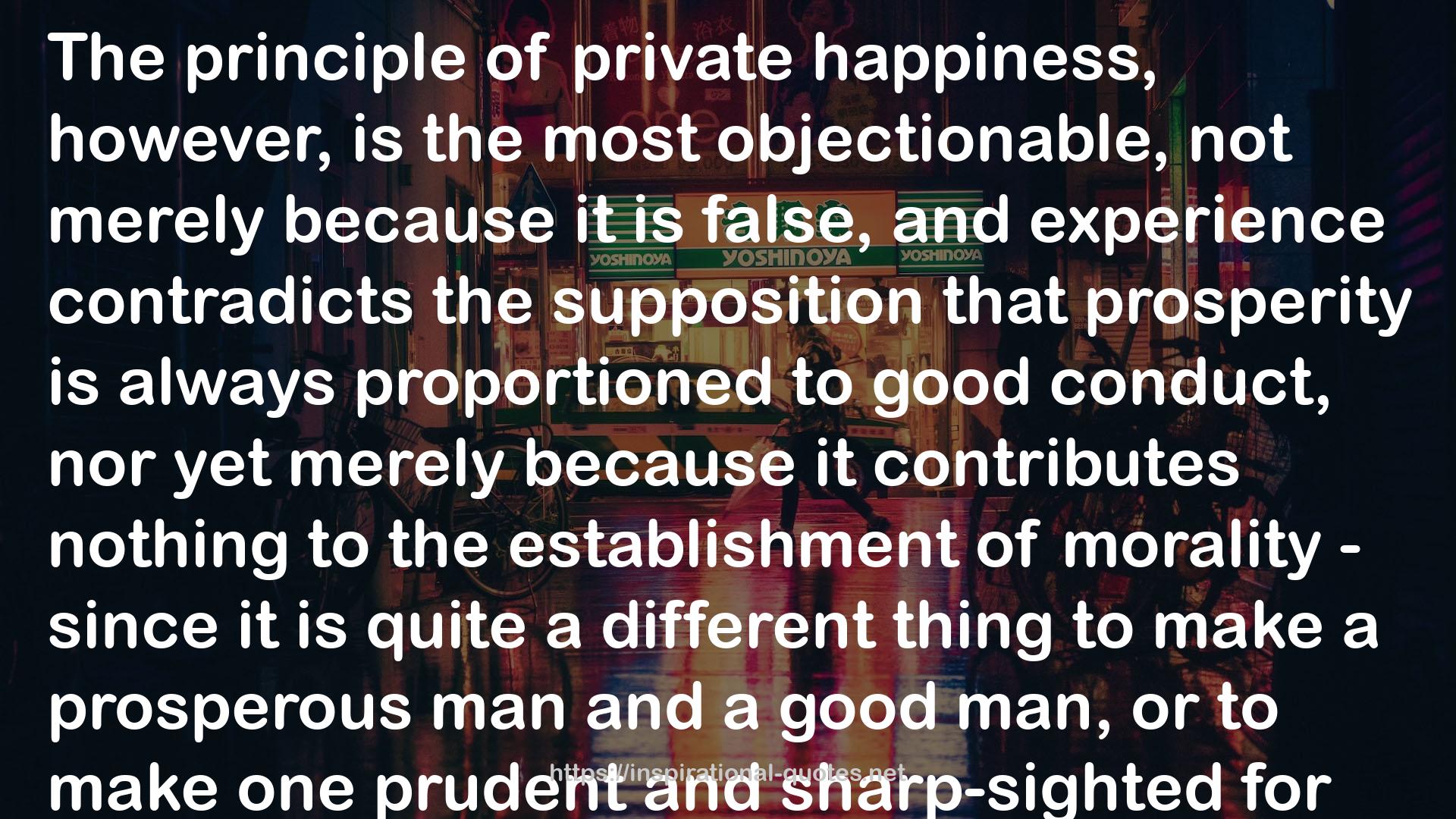" The principle of private happiness, however, is the most objectionable, not merely because it is false, and experience contradicts the supposition that prosperity is always proportioned to good conduct, nor yet merely because it contributes nothing to the establishment of morality - since it is quite a different thing to make a prosperous man and a good man, or to make one prudent and sharp-sighted for his own interests, and to make him virtuous - but because the springs it provides for morality are such as rather undermine it and destroy its sublimity, since they put the motives to virtue and to vice in the same class, and only teach us to make a better calculation, the specific difference between virtue and vice being entirely extinguished. On the other hand, as to moral being, this supposed special sense, the appeal to it is indeed superficial when those who cannot think believe that feeling will help them out, even in what concerns general laws; and besides, feelings which naturally differ infinitely in degree cannot furnish a uniform standard of good and evil, nor has anyone a right to form judgments for others by his own feelings... "
― Immanuel Kant ,
Image for Quotes

